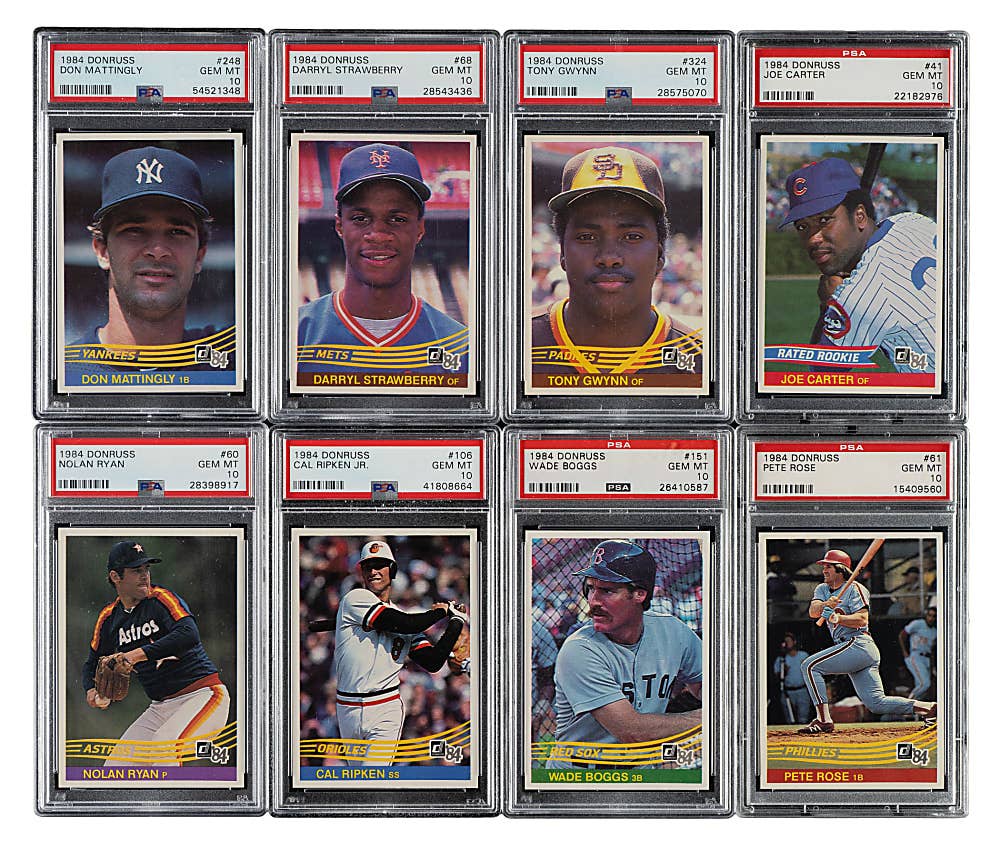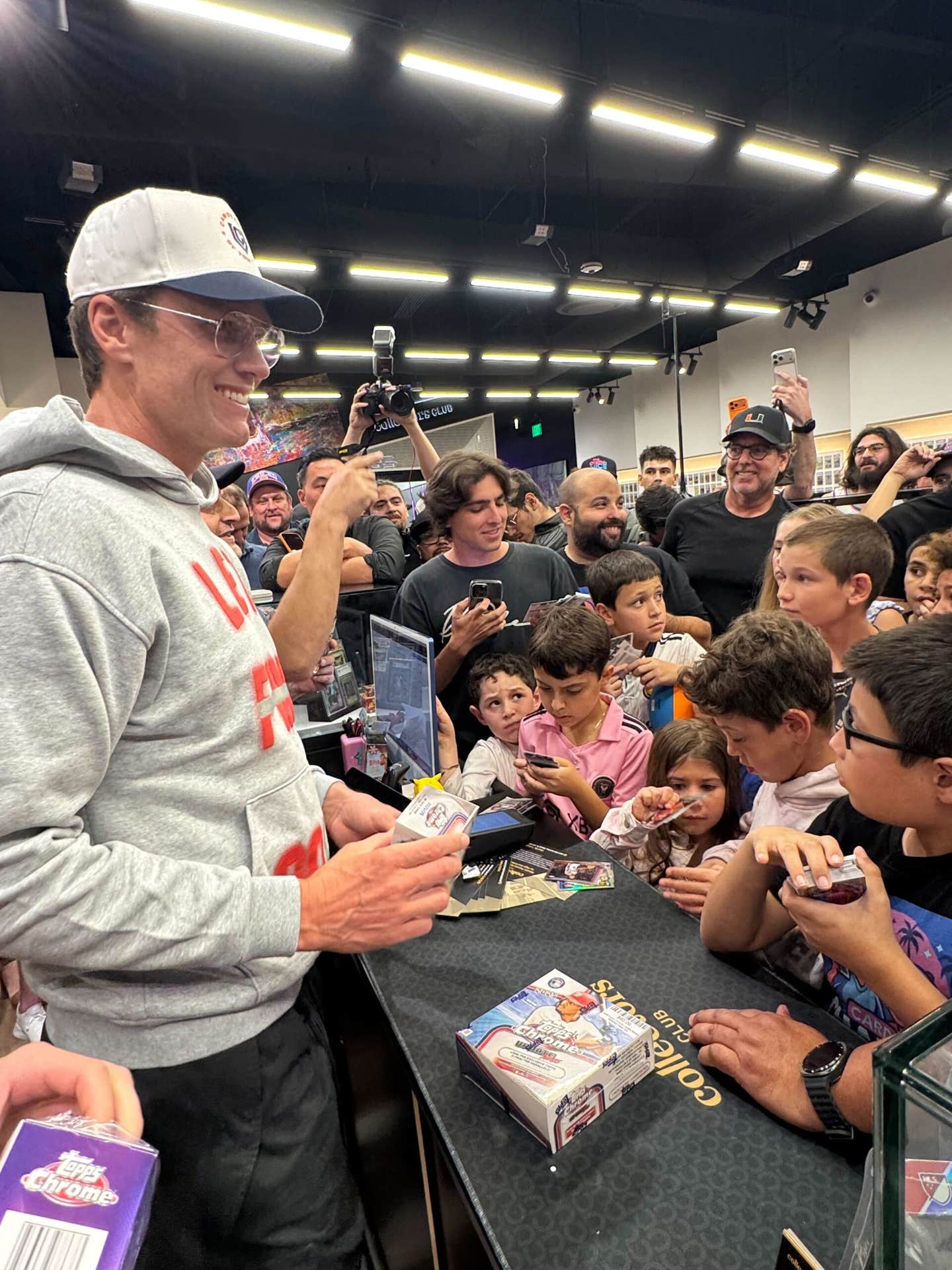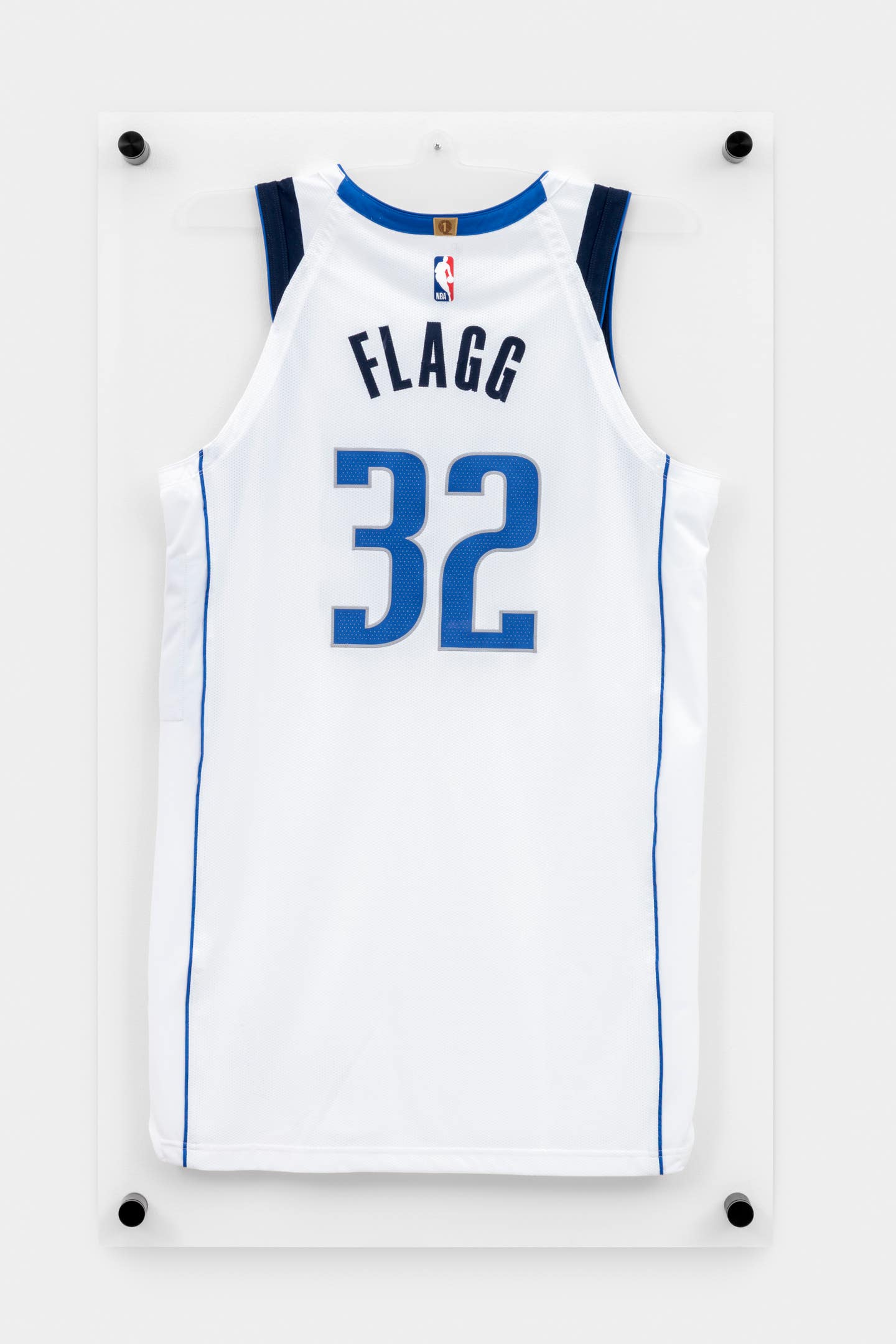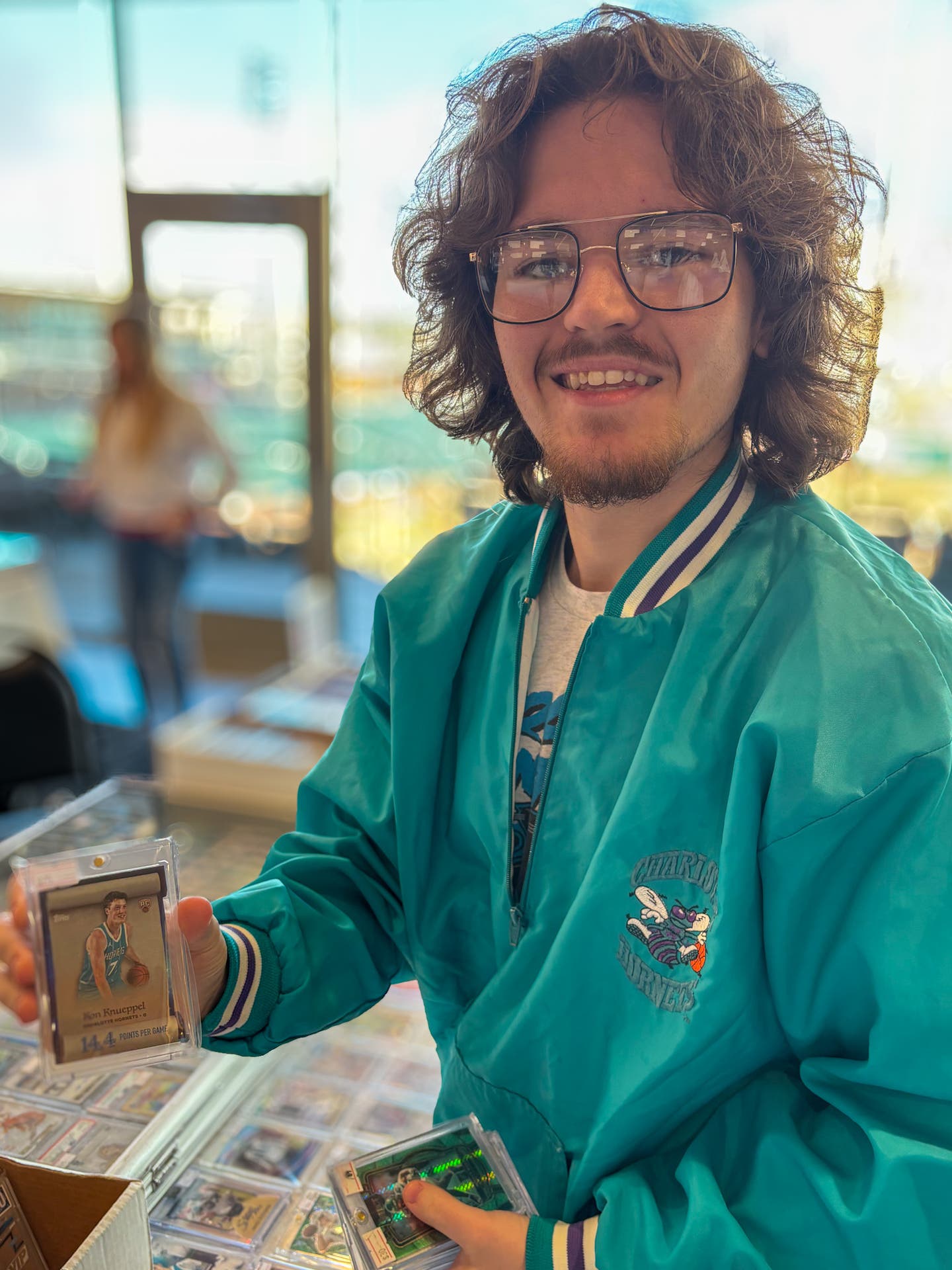News
Joe Carter still relishes in the glory of his game-winning home run in the 1993 World Series
Joe Carter likes to good-naturedly tease people when asked about the walk-off, World Series-winning home run he clubbed 23 autumns ago.
“You know,” he often tells fans while grinning mischievously, “I did hit more than one homer in my career.’’
That he did. In fact, he hit 396 of them in his 16 big-league seasons, but the one everyone wants to talk about is the line drive he blasted like a tee-shot over the left field wall inside Toronto’s SkyDome on Oct. 23, 1993. That smash – and the joyous, little-kid romp around the bases that followed – are Carter’s defining moments. As Blue Jays broadcaster Tom Cheek said during that memorable trot: “Touch ’em all Joe. You’ll never hit a bigger home run in your life.”
Not only did that round-tripper give the Jays its second consecutive World Series title, it also enabled Carter to join Bill Mazeroski as the only players in Major League Baseball history to end a Fall Classic with walk-off homers.
“It changed my life forever,’’ he said while signing autographs at a Rochester (N.Y.) Red Wings home game at Frontier Field in mid-August. “If you are going to be remembered for something, it’s great to be remembered for something like that; something you dreamed of doing since you first picked up a bat; something that still touches a chord with people all these years later.”
With one vicious swing, Carter instantly went from being an ordinary Joe to a national hero in Canada.
“One of the first things Blue Jays fans tell me is where they were and what they were doing at the time I hit the homer,’’ he said. “I’ve had a groom say he was in a bar watching the game while his bride was waiting in the other room for their wedding reception to begin. I’ve had people tell me they were dancing in the streets after I hit it. I’ve even had people come up to me and say, ‘Joe, I want you to meet our son, Carter.’”
The remembrances of swings past always brings a smile to Carter’s face.
“I never realized,’’ he joked, “that there were close to 400,000 in attendance at SkyDome that night.”
Hey, such is the allure of one of the most famous long balls in baseball history. It is why the “I was at the game” stories well out-number the 52,195-seating capacity for Game Six.
“I get why people would want to say they were there, even if they weren’t,’’ he said. “It was one of those iconic sports moments.”
Carter can thank former Blue Jays General Manager Pat Gillick and a little divine intervention for putting him in the right place at the right time. Gillick stunned Blue Jays fans before the 1991 season when he traded two highly productive and popular players – Fred McGriff and Tony Fernandez – to the San Diego Padres in exchange for Carter and a little known second baseman named Roberto Alomar. It would turn out to be one of the shrewdest moves of Gillick’s Hall of Fame career. Alomar’s anonymity wouldn’t last long. He would become one of the catalysts of the Blue Jays dynasty and wind up joining Gillick in Cooperstown.
Carter had been an RBI machine with the Cleveland Indians and Padres, and continued to be Mr. Consistency with the Blue Jays. In his first season north of the border, he had 33 homers, 108 RBI and a .273 batting average. In 1992, he was even more productive, smacking 34 homers and driving in 119 runs as Toronto won its first World Series.
Interestingly, Carter was involved in the final play of that Fall Classic, too, when, while playing first base, he fielded a throw from pitcher Mike Timlin for the last out to beat the Atlanta Braves.
That offseason Carter became a free agent, and he was faced with a difficult choice: Stay with the Jays or take an even better offer from the Kansas City Royals. Most figured he would become a Royal because they were offering more money. Plus, his wife, Diana, was from Kansas City and the couple already was making their off-season home there. But the decision wasn’t that cut-and-dried for Carter. He was still basking in the glow of his first World Series championship and he realized the Jays were stocked with enough talent to make a successful title defense.
Carter said he relied on his faith in God to help him decide whether he should stay or go.
“I went to bed one night and I had a dream,’’ he told a reporter. “I saw myself walking with Devon White (his Blue Jay teammate in 1992) to a stadium and I was dribbling a basketball. Why I had a basketball, I don’t know, but it was pitch black when we walked in and the scoreboard said, ‘Welcome to SkyDome.’’’
That was sign No. 1. The next sign came when he awoke and his wife told him to look out the window. He saw blue jays all over his backyard.
“You see them sometimes in Kansas City,’’ he said. “But not very often.”
Carter didn’t need any more signs. “I figured God was making it pretty clear to me what I should do,’’ he said. So, he re-upped with Toronto, and it turned out to be the best decision of his baseball career. Carter wound up having another All-Star season in 1993, with 33 homers and 121 RBIs. It was the fifth consecutive time he drove in 100 or more runs. But it would be the three runs he drove in during the last at-bat of that post-season that would secure him a permanent spot in baseball lore.
The Jays took a three-games-to-two lead in the Series against the Philadelphia Phillies, and when they scored three runs in the bottom of the first in Game Six, it appeared they were on their way to a rout; that no late-game heroics wouldn’t be necessary.
But the 1993 Phillies were a feisty, resilient bunch and they battled back from a 5-1 deficit. After Jays starter Dave Stewart yielded a three-run homer to Lenny Dykstra in the seventh, manager Cito Gaston brought in reliever Danny Cox. He gave up three hits, a walk and two runs as the Phillies took a 6-5 lead into the bottom of the ninth.
Reliever Mitch Williams, aka “Wild Thing,” walked Jays leadoff hitter Rickey Henderson. After a flyout by White, Paul Molitor singled. That brought up Carter, who worked the count to 2-2. Williams attempted to slip a slider by Carter. Big mistake. A skilled low-ball hitter, Carter smashed the pitch down the left-field line.
“I had pulled a number of balls foul that year and I momentarily lost sight of the ball after it left my bat,’’ Carter recalled. “I was praying that it would stay fair and I wasn’t sure if it had enough lift to clear the wall. But I figured if it hit the wall we’d at least tie the game.”
Carter’s prayers wound up being answered. The ball stayed fair and rocketed over the wall into the Toronto bullpen as the Jays won 8-6 to become the first team since the 1978 Yankees to repeat as Series champions. The crowd went bonkers and fireworks exploded from the SkyDome rafters as Carter galloped around the bases, his feet barely touching the ground.
“It was all kind of surreal as I headed down the first base line,’’ he recalled. “The first thing that went through my mind was: ‘Make sure you touch all the bases.’ As I’m rounding second, I’m so happy I’m thinking to myself that I wish I had learned how to do cartwheels. I told Mitch that years later and he said if I had done cartwheels, he would have come back onto the field and drilled me.”
Carter had joined Mazeroski – who vanquished the Yankees with a bottom-of-the-ninth homer in Game 7 of the 1960 World Series – as the only players in the then 90-year history of the Fall Classic to end things with a home run. It’s a feat that hasn’t been duplicated.
“I’m thrilled to be in a pretty exclusive fraternity,’’ Carter said. “Only two members so far.”
He went on to play four more seasons with Toronto before ending his career in 1998 with the San Francisco Giants. The five-time All-Star finished with 1,445 runs batted in and became one of just a handful of players to record 10 100-RBI seasons.
After retiring, Carter spent several seasons as a broadcaster for the Jays and the Chicago Cubs, the team that originally drafted him No. 2 overall in 1981 after he had been named the top player in college baseball while playing for Wichita State.
Throughout his career Carter was involved in charitable causes. And his philanthropy continues to this day. Each summer, for the past seven years, he has hosted the “Joe Carter Classic,” a golf tournament in suburban Toronto that has featured celebrities such as Charlie Sheen, Charles Barkley and the late Gordie Howe while raising more than $2 million for the Children’s Aid Foundation, which provides college scholarship for kids who were abused.
In recent years, he’s worked as a special assistant in the front office of the Arizona Diamondbacks. The 56-year-old Carter said he has no desire to manage or coach.
“It would interfere with my golf game,’’ joked the man with a one handicap.
He does just a handful of autograph shows each year, and when he does the turnouts are huge. The majority of the thousand or so fans who waited in line for his signature at Frontier Field three months ago, showed up with cards and photographs of Carter’s signature moment.
“It’s pretty cool that after all these years it still resonates with people,’’ he said. “You come to realize that it’s not only your moment in time, but a moment in time for so many others, too. That you can share it makes it all the more special.”
Best-selling author and nationally honored sports columnist Scott Pitoniak covered Carter’s World Series winning home run in Toronto in 1993. Pitoniak counts it as one of the favorite moments in his 44 years as a sports journalist.








